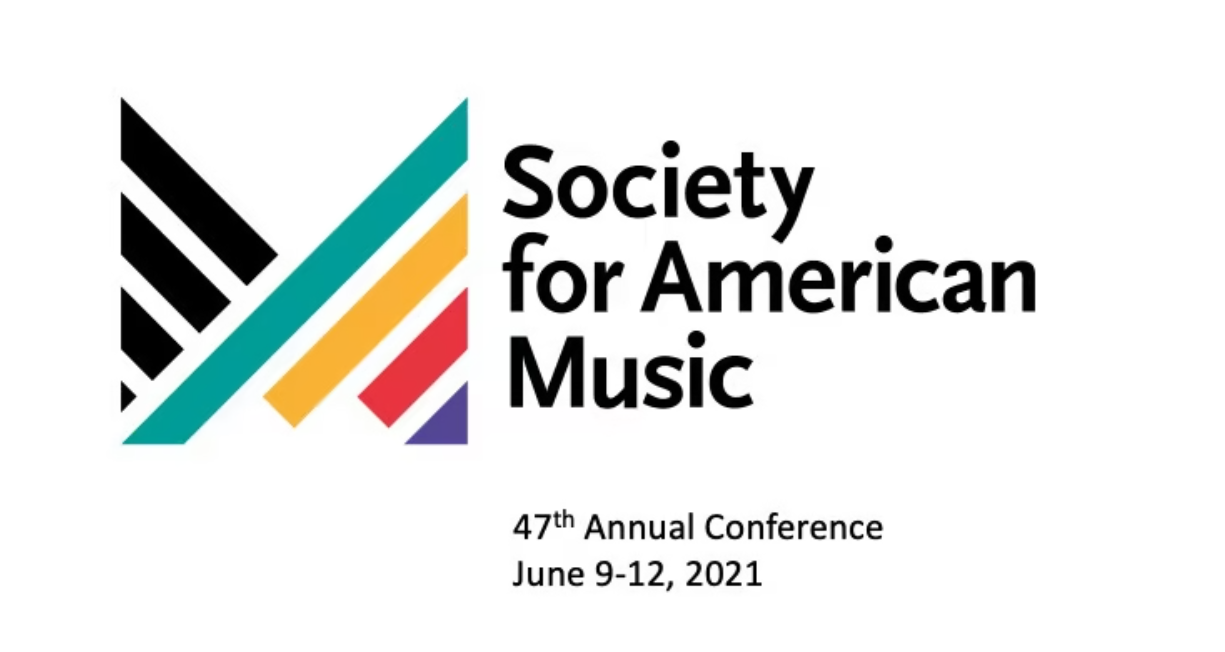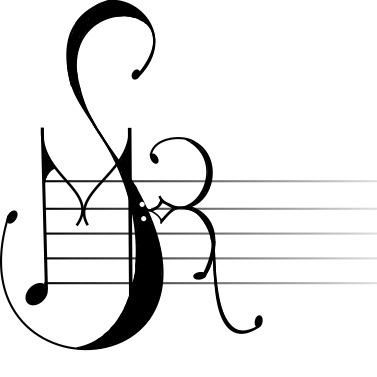
This June, the Society for American Music held their 47th annual conference virtually. Two of our SMR members, Kai West and Cody Jones, presented papers at the conference and were kind enough to answer some questions about the event. See below for their thoughts and abstracts. Congratulations, Kai and Cody!
What was the most interesting question you were asked?
Kai West: “What role has TikTok played in shifting gender dynamics around the electric guitar, with regard to filmed musical performance?”
Cody Jones: I was asked about the audience for performances of The Stephen Foster Story, particularly the racial make-up of the audience. It’s a good question that I get a lot, and it hits at the heart of the project talking about who tells history and who they tell it to. It also gives me a chance to think and talk about how we archive and collect information, particularly as it relates to race in the US.
What was the most interesting/surprising thing you learned?
KW: My co-panelist made me aware of a magazine from the 90s focused on female rock musicians, ROCKRGRL, that was a direct antecedent to the digital media publications my paper focused on, which helped place my project in a broader historical context.
CJ: Rebecca Fülöp gave a paper about what she called the “schwing” trope in comedy movies and TV shows. It’s basically the scene where a beautiful woman makes an entrance (usually in slow motion and accompanied by music) and the usually-male future love interest is taken aback. She pointed out some earlier precedents for this in film and talked about how comedies created a whole trope out of making fun of scenes like Scarlett O’Hara coming down the staircase. It was a really interesting paper that looked at gender in comedy films, and it picked apart a number of really good and really bad movies and TV shows.
What about your presentation did you feel went well?
KW: There was a lively Q/A with lots of questions, and because there were only two of us on the panel, we were able to spend some time in a kind of roundtable discussion with the chair and attendees that was more open ended than standard Q/A.
CJ: The Q&A was really exciting. It was live, and I got a bunch of questions. It was nice to have space to respond and expand on things that I know I left out of the final presentation and to hear how others interpret my work. Lots of people had very strong opinions, which I welcome. I hope future readers and audiences will engage passionately and actively with the work I do.
What about your presentation did you feel could have gone better?
KW: My delivery of the paper on the video could have been more natural and conversational. It felt clunky and slow…
CJ: I wish I had added subtitles to the video. I made a transcript, but I couldn’t share it with the audience on the day of the presentation. I tend to speak quickly, and I think it may have made me easier to understand for others. When watching other presentations, I really appreciated those that had captions. I wish I would have done that for others.
Did you make any connections you’re excited about?
KW: Theo Cateforis, an amazing punk and new wave scholar, asked me a question.
CJ: Will Cheng. I’ve enjoyed reading his books for several years. He’s a beautiful writer who combines scholarship and personal experience very compellingly.
Were there any logistical aspects of SAM that you appreciated in particular?
KW: As opposed to other digital conferences that required you to view the videos in advance (kind of like homework!), SAM played the video presentations live in the panel, so it felt a bit more like a typical conference setup.
CJ: I appreciated that they created landing sites for each day with Zoom links pasted everywhere. It made it easy to navigate the online conference.
Any tips for those who might submit abstracts in the future?
KW: Think about what kind of panels your paper might be assigned to, and write the title to point to those themes.
CJ: I would echo Kai’s point. Being thoughtful in the title and the framing of the argument is important, especially since that is all the conference committee has to go on when deciding panels. It can help them know where to put your paper and how to get you in a room with presenters and an audience who is looking to engage with several people doing similar work.
Kai West, “She Shreds: Empowerment, Digital Media, and the Transformation of Guitar Culture”
Since the early twentieth century, heteronormative gender constructs have permeated the cultural identity and representation of the electric guitar. Today, that long-entrenched hegemony is being uncovered and undone. Founded in 2013 as a print magazine and since evolving into a multifaceted digital project, She Shreds Media has sought to reshape representation in the popular music industry by focusing on “what it means to be a woman who shreds.” Taking a digital ethnographic approach, this paper explores how She Shreds advances a new paradigm of inclusion and empowerment that has triggered tangible changes in the guitar industry.
Cody Jones, “Music, Race, and Historical Memory in The Stephen Foster Story”
The Stephen Foster Story is an outdoor historical musical drama depicting the life of the eponymous songwriter. This paper draws from archives, scores, scripts, and personal interviews to examine the evolving depictions of Black characters in the musical since its premiere in 1959. Drawing from scholarship by Matthew D. Morrison and Saidiya Hartman, this paper argues that the show has historically reinforced white supremacist ideology by using Foster’s comic and sentimental minstrel songs to constrain the show’s Black characters to stereotypical tropes from blackface minstrelsy within the context of a romanticized depiction of the antebellum period in the United States.
Recent Posts
SMR to Host Midwest Graduate Music Consortium 2025 Conference – January 13, 2025
SMR Welcome BBQ at County Farm Park – October 01, 2024
Julian Grey defends dissertation – June 05, 2024
Michaela Franzen defends dissertation – May 21, 2024
Kai West defends dissertation – May 16, 2024
Micah Mooney and Carlos Pérez Tabares present at Music Theory Midwest – May 12, 2024
SMR end-of-year round-up at County Farm Park – April 25, 2024
SMR hosts Research Showcase – September 29, 2023
 Society for Music Research
Society for Music Research